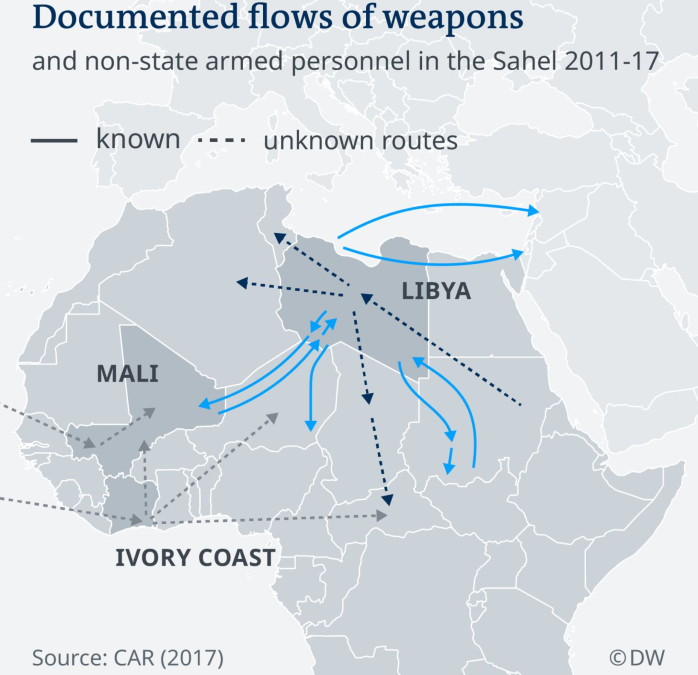Owusu on Africa
Owusu on Africa: Arms proliferation – a major factor of instability in Africa


By Fidel Amakye Owusu
One of the pivotal factors that remains indelible when dissecting the origins of the First World War (WWI) is the relentless arms race that unfolded between Britain and Germany.
In essence, the Great War emerged as a clash primarily between two powers armed to the teeth and primed for conflict long before the assassination of Franz Ferdinand.
Similarly, the prelude to World War II witnessed significant arms build-up across European nations. Even during the Cold War era, where direct confrontations between major powers were averted, the world teetered on the brink due to rampant arms proliferation. This proliferation, initially vertical within states, eventually spilled over horizontally across nations.
The repercussions of this arms race echoed far beyond the battlegrounds of Europe. Indeed, the weapons that fueled intra-state conflicts, notably in Africa during the Cold War and the tumultuous 1990s, often originated from this era. Both sides of the ideological spectrum furnished their proxies and puppet regimes with arms, igniting conflicts across the globe.
But what does this historical backdrop signify?
Despite Africa’s considerable socio-economic potential and achievements, internal strife and inter-state tensions loom large as formidable impediments. Economic progress and development become arduous tasks amidst uncertain environments characterized by escalating terrorism and political turmoil, often intertwined.
At the heart of these conflicts and regressive activities lies the abundance of legal and illicit arms permeating the continent. From the volatile Horn of Africa through Central Africa to the western Sahel, both state and non-state actors are increasingly arming themselves for various conflicts.
While some countries boast substantial small arms industries, the bulk of arms are imported. In an era of heightened great power competition, arms supply often occurs with scant regard for global standards and protocols. This proliferation of arms can also stifle the willingness of state actors to seek political resolutions.
Even more concerning is the proliferation of small arms, particularly across Africa. With a plethora of arms falling into the hands of dangerous non-state actors, including terrorist groups, insecurity reaches alarming levels.
A majority of these arms are not produced within Africa. Compromised ports, porous borders, and endemic corruption have facilitated this proliferation. Tackling this issue requires a multifaceted approach, recognizing the powerful traffickers behind the illicit trade and addressing the underlying factors driving it.
So, what lies ahead?
While eradicating this decades-old trade won’t happen overnight, embracing modern technology to limit human involvement in monitoring imports could prove pivotal. Additionally, the United Nations must explore more effective strategies for implementing protocols governing both legal and illicit arms proliferation, particularly in Africa, where these issues pose significant threats to stability.
Fidel Amakye Owusu is an International Relations and Security Analyst. He is an Associate at the Conflict Research Consortium for Africa and has previously hosted an International Affairs program with the Ghana Broadcasting Corporation (GBC). He is passionate about Diplomacy and realizing Africa’s global potential and how the continent should be viewed as part of the global collective.

